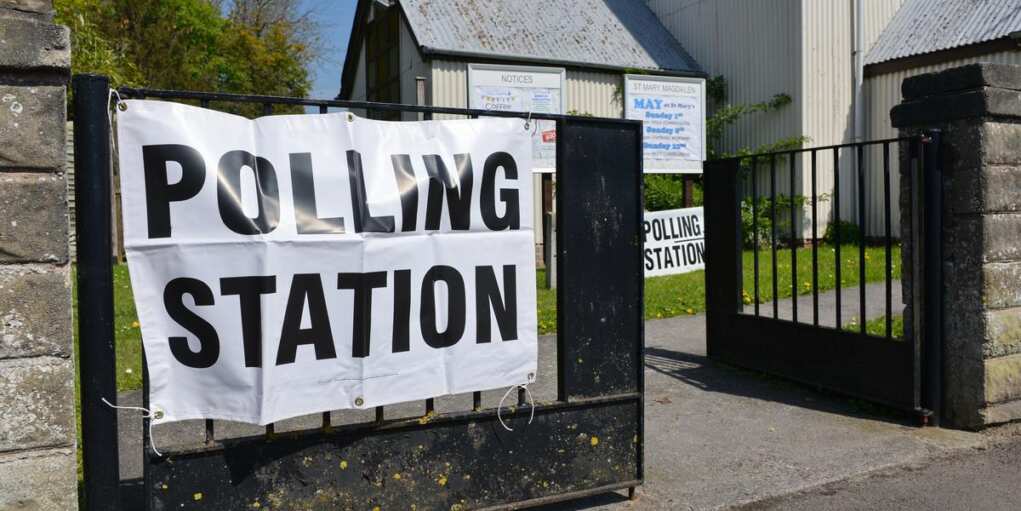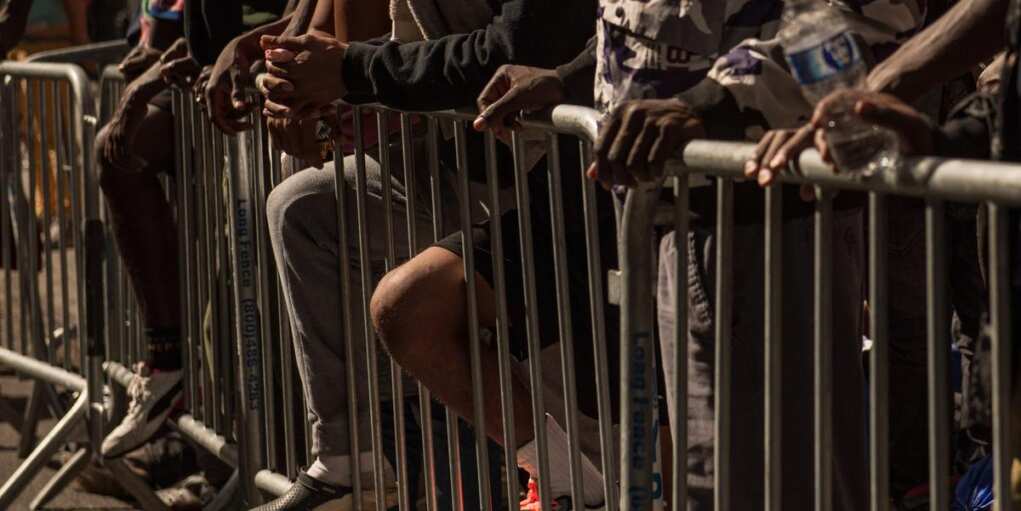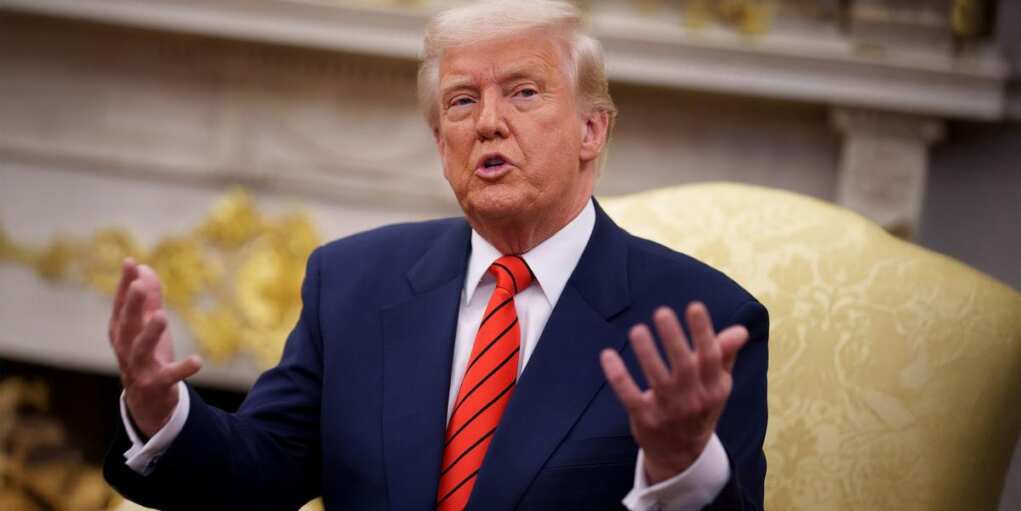Trump’s Shocking Move: 600,000 Chinese Headed for U.S.
At a White House press availability Monday, Trump emphasized that the U.S.-China relationship was critical and claimed allowing 600,000 Chinese students into the country was “very important.” Currently, about 277,000 Chinese students are enrolled in American universities, making up nearly a quarter of all international students. “President Xi would like me to come to China. […]
Microsoft Study Reveals Which Jobs AI Is Coming For
The study, based on 200,000 anonymous conversations with Microsoft’s Copilot AI tool, mapped real-world usage of AI against the government’s job classification system. The findings show entire job categories already facing heavy overlap with AI, particularly roles dependent on writing, analysis, and communication. At the other end, physically demanding jobs remain largely untouched — for […]
Crime Poll Shocker Leaves Democrats Scrambling
For years, Democrats have downplayed the crime crisis, insisting it was exaggerated, even as ordinary Americans felt unsafe in their own neighborhoods. But now the numbers tell a devastating story for the left. An AP-NORC poll shows that a staggering 81 percent of Americans view crime as a “major issue.” That includes 96 percent of […]
America Buckles Under Wave Of Illegal Immigration
Colorado has become the latest state to feel the crushing weight of unchecked illegal immigration. According to new numbers compiled by the Pew Research Center, the state saw its illegal alien population explode by 43,000 in just two years, rising from 160,000 in 2021 to more than 200,000 by 2023. Much of this influx has […]
Trump Zeroes In on Another Far-Left Comedian
President Donald Trump has once again taken aim at corporate media, this time zeroing in on NBC over its decision to keep Seth Meyers fronting Late Night through 2028. In a post on social media, Trump ripped into the move, calling Meyers “one of the least talented Late Night television hosts out there.” “There is […]
American Lawmakers Face Chilling Wave of Political Violence
Political violence in the United States is no longer confined to online rhetoric or distant political clashes—it’s reaching straight into the homes of public officials. From city mayors to members of Congress, elected leaders are finding themselves and their families targeted in ways unseen in modern American politics. U.S. Capitol Police revealed that in 2024 […]
Globalists Plan To Unleash Chaos—Prisons To Be Emptied
Prime Minister Keir Starmer’s Labour government is pushing sweeping sentencing reforms that critics warn will keep dangerous criminals out of prison. Under the proposed Sentencing Bill, set to reach Parliament next month, judges will be urged to hand down community penalties instead of jail terms for sentences of up to 12 months. That change would […]
TikTok Star Who Mocked ICE Gets Taken Down on Camera
In Los Angeles, what began as just another livestream for Leidy Tatiana Mafla-Martinez ended in a spectacle that highlighted the stark reality of illegal immigration enforcement under President Trump’s Department of Homeland Security. Known online for filming and mocking ICE agents during raids, the Colombian national had amassed more than 40,000 TikTok followers by chronicling […]
Zelensky’s Clothes Spark Buzz at the White House
Ukrainian President Volodymyr Zelensky made headlines this week—not just for peace talks with President Donald Trump, but for a wardrobe change that left everyone buzzing. Unlike his last visit, where he showed up in a military-style sweater that drew heavy criticism, Zelensky arrived at the White House in a sleek black suit that drew instant […]
Hillary Clinton’s Strange Marriage Warning
Hillary Clinton is back in the headlines, this time making waves with comments many are calling bizarre and alarmist. In an appearance on “Fox & Friends,” the twice-failed presidential candidate urged LGBTQ couples to rush to the altar — before Republicans allegedly strip away gay marriage rights. Clinton claimed the GOP has been plotting for […]
George Soros Legacy In Trouble—His Son Is Struggling
George Soros just turned 95, a milestone that would normally mark a legacy cemented in history. Instead, it comes at a time when the global empire he built is showing cracks that can no longer be ignored. The once-feared financier who styled himself as a progressive visionary now faces the reality of watching his fortune […]
The Left’s Secret Courtroom Strategy Exposed
President Trump has never been shy about calling out what he sees as corruption in America’s legal system. Now, in an exclusive interview, he’s warning that the practice of “judge-shopping” has grown so out of control it threatens the very foundation of equal justice. Judge-shopping isn’t a new concept, but in the hands of Democrat […]
Media Meltdown Over Trump Redistricting Sparks Outrageous Comparison
The American Left has officially jumped the shark. On PBS’s NewsHour, New York Times columnist David Brooks launched into a bizarre tirade against President Donald Trump’s support for Texas Governor Greg Abbott’s redistricting efforts, going so far as to compare the move to chemical warfare. Yes, you read that right — Brooks likened redistricting to […]
UK On The Brink — Top Army Officer Warns Of Civil War
Retired British Army Colonel Richard Kemp has delivered one of the starkest warnings yet about the state of the United Kingdom. Kemp, who once commanded forces in Afghanistan and held senior intelligence roles in Westminster, told interviewer Conor Tomlinson that the primary threat facing Britain is not from abroad but from within — a dangerous […]
Banks Push Back — Trump Faces High-Stakes Fight Over Fintech Plans
President Trump is finding himself in the middle of a high-stakes financial fight — and the pressure is mounting fast. On one side are America’s largest banks. On the other side are powerful fintech firms, crypto companies, and their Silicon Valley backers. The battle erupted after a coalition of fintech and crypto companies sent a […]















